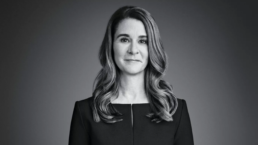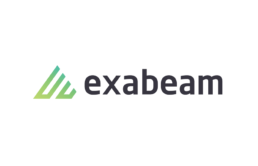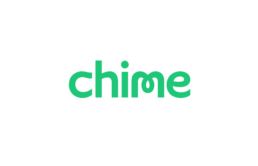Financial Times special report: Female investors hold the keys to change
[Read on Financial Times]
If there were more female investment professionals, would there be more innovation and economic growth? Lillian Li thinks so. Fed up with the boys’ club culture of her chosen profession, in 2016 she and a group of like-minded millennials working in venture capital co-founded London-based Diversity VC, a campaign group to push for change.
“We would go to VC networking events and see a very homogeneous group over and over again interacting in very similar ways. As the nature of venture capital is to invest in the future, we wanted to create an organisation that more closely reflects the society in which it invests,” says 29-year-old Ms Li, an investor at Eight Roads Ventures.
To establish the facts, Diversity VC analysed UK VC firms and found almost half employ no female investors and, overall, women make up just 13 per cent of decision makers.
The gender gap in UK investment teams is not exceptional, though gradually the top VC firms are admitting more women to their senior ranks. Across Europe, 9 per cent of partners in seed and early-stage VC funds are women, according to estimates by European
Women in Venture, a networking community. This figure is 8 per cent for the top 100 global venture firms, says business intelligence provider Crunchbase.
The image of investment houses as male bastions is bad for gender equality and the industry, which has been shamed by sexual misconduct allegations, typically concerning men in positions of power harassing female colleagues and entrepreneurs.
It may also be bad for the start-up economy. Women entrepreneurs, especially those targeting a female market, may feel disadvantaged when pitching to investment teams comprising solely or mostly men, and they may be right to do so. In one study, Boston Consulting Group found that start-ups founded or co-founded by women garner, on average, half as much funding as those started by men, yet dollar for dollar generate higher revenues than their male-founded counterparts.
Kathryn Minshew co-founded The Muse, a popular jobs and career website based in the US targeted at young professional women that quickly found a market among male millennials too.
She recalls how during the initial seed round male VCs would try to “turn meetings into dates” or make blatantly ill-informed remarks. “I was told by one investor that he didn’t think we’d be able to retain our users once they turned 30 and had babies.”
Colette Ballou, founder of Ballou PR, is an investor in VC funds and urges businesswomen who care about equality to buy into funds and push for change from the inside. Many VC firms grew fast without setting up robust HR functions, she says, and lack basics such as parental leave policies or channels of complaint for staff who experience sexual harassment.
To help venture firms minimise biases in their hiring processes, Diversity VC is developing a set of recommended practices, such as asking the same questions of every candidate.
Analysis by academics at Columbia University and Harvard Business School of pitches recorded at TechCrunch Disrupt New York, a funding competition, revealed that both male and female investors asked men how they would expand their businesses and women how they would prevent losses, reinforcing stereotypes of men as go-getting and women as risk- averse.
Entrenched expectations can be hard to change. But a trend for senior women to leave established venture firms to found new firms may offer an answer.
According to Crunchbase, 21 per cent of venture firms set up in the past three years have at least one female founder, almost three times the rate in the top VC firms. It also found that female-founded and co-founded firms employ a higher proportion of female investors overall, and invest at a greater rate in female entrepreneurs.
Jenny Ruth Hrafnsdottir, one of three female founders of Crowberry Capital, a Reykjavik- based venture firm operating in the Nordic region, is unsurprised. “There are some [investment opportunities] where gender doesn’t really matter, but where there are products made for women, it’s logical that we’ll invest a little differently and see opportunities that men might miss,” she says.
Theresia Gouw, co-founder, Aspect Ventures
Theresia Gouw left Silicon Valley venture capital group Accel Partners in 2014 to found Aspect Ventures with Jennifer Fonstad. In 2015, Aspect led a $10m investment into The Muse, below, a female-founded jobs and career website targeting millennials.
Is Aspect female-led by design?
It wasn’t on purpose. We saw an opportunity to be laser-focused on [early-stage] investments as a bridge between seed funds, angel investors and larger firms. Our investing team is half male and female and our portfolio is 40 per cent female-founded.
What led you to The Muse?
An angel investor, who happens to be female.
Do you look for female founders?
We look for the best founding teams. It’s not gender specific, but we’re drawn to founders whom we call domain experts and The Muse’s genesis was that Kathryn Minshew and Alexandra Cavoulacos were looking to solve a problem for their peer group.
Kathryn Minshew, co-founder, The Muse
Were you looking for a female backer?
I wanted the person who could best help us navigate the challenges of scaling. I knew that at Accel, Theresia (Gouw), above, had invested in companies that I looked up to, such as Trulia and LearnVest, and I talked to their CEOs about working with her.
What was different?
We used to encounter a lot of gross generalisations such as “outside New York and Los Angeles, women don’t really care about their careers”. Theresia understood that there were many career-minded women who were feeling not understood by other outlets, and that allowed her to very quickly see the opportunity.
What was the first meeting like?
It was a videocall with Lauren Kolodny, one of Theresia’s colleagues. Sometimes it seems like investors live in a land where everyone is “crushing it” all the time. I felt able to talk about the good things and also the challenges and that continued when I met Theresia.
[continue reading on Financial Times]
TechCrunch Equity: Lauren Kolodny on SurveyMonkey's IPO, Toyota's investment in Uber, and the latest on the electric vehicle market
[Listen on TechCrunch]
Hello and welcome back to Equity, TechCrunch’s venture capital-focused podcast where we unpack the numbers behind the headlines.
This week, we were a man down, with the excellent Alex Wilhelm of Crunchbase News on a vacation that someone seems to have sanctioned, though it was not us, as we don’t believe in vacations. (Wilhelm, get back here.) We did, happily, have the very knowledgeable Kirsten Korosec of TechCrunch join us on the line; we were also joined by this week’s personable in-studio guest: Lauren Kolodny, a partner at the San Francisco-based, early-stage venture firm Aspect Ventures.
It was the perfect mix to talk about car makers and more car makers, including Tesla and CEO Elon Musk’s seemingly ill-planned plans to take the publicly traded company private, then vacillating a bit before changing his mind again, much to the chagrin of his board, the company’s shareholders, and poor Kirsten, who was trying to enjoy her evening last Friday when Musk decided (for now) to leave well enough alone and drop the whole cockamamie idea of switching out Tesla’s investor base.
We also talked about Toyota’s announcement this week that it’s sinking $500 million into Uber and forming an intriguing if confusing driverless-car pact in the process. And we lingered on Nio, a four-year-old, Shanghai-based electric car vehicle that, if it has its way, will begin trading on the New York Stock Exchange in roughly two weeks — even though it only made $7 million in the first half of this year and reported a net loss of $503 million. Who’s counting, though? Not U.S. investors, it hopes.
Speaking of IPOs, we knew we’d be remiss not to talk about the IPO filing this week of SurveyMonkey, a now 19-year-old, San Mateo, Calif., company that’s beloved by both personal and business users of its analytical tools and surveys, but which is stillnot making money, owing in part to expensive debt that the company is currently servicing (and will pay down using its IPO proceeds). Will public shareholders embrace the company, which was valued at $2 billion during its last private round in 2014 but whose value has subsequently been marked down by fully 25 percent since by fund manager Fidelity? Stay tuned!
We did not get to our favorite topic of scooters, running out of time to chat about this major development and also this one. Knowing how much we love to toot about les scoots, rest assured that they will back next week, as will we, so tune in again then!
Equity drops every Friday at 6:00 am PT, so subscribe to us on Apple Podcasts, Overcast, Pocket Casts, Downcast and all the casts.
Melinda Gates: Why I’m betting on diversity
In this article in Fast Company, Melinda Gates discusses diversity in investing and her investment in Aspect Ventures.
To change the world, it helps to get capital into the hands of people who have a different vision for it. A few years ago, I began quietly investing in “nontraditional” venture capital funds—”nontraditional,” of course, being industry parlance for a fund that isn’t completely overindexed on companies led by white men. With these investments I joined a growing community of funders who believe that worthwhile investment ideas are more evenly distributed among the population than the current flow of venture capital dollars would suggest.
My journey to Sand Hill Road began, of all places, on a beach in Tanzania. It was 1993, and Bill and I were in East Africa to celebrate our engagement. That trip was our first encounter with the daily realities of extreme poverty and disease, and we were deeply affected by what we saw. Before we went home, we took a long walk and discussed giving most of the wealth that had been created by Microsoft back to society. After a few years of learning, listening, and consulting with experts, we decided to start a foundation dedicated to ending inequality.
As my three kids got older, I took on a more public role at our foundation and spent time in developing countries talking to women and girls about their lives, their goals, and the barriers standing in their way. I met so many strong, hardworking women who wanted nothing more than the chance to lift their families out of poverty and contribute to their communities—a chance they would never have simply because they were born female.
On my way home from these trips, I thought a lot about the fact that there is no country on earth where women have achieved true equality. The truth is that we’re wasting a lot of human potential here in the United States, too. Women are still underrepresented in government, in media, and at the highest levels of almost every industry. I decided that—without taking time or resources away from the priorities of our foundation—I needed to do more to advance equity in my own country. That decision led me to start Pivotal Ventures.
Pivotal Ventures works to help dismantle barriers to equality for women and people of color in the United States. In many ways, it feels like a natural continuation of the work I’ve been doing at our foundation. But it also offers me new opportunities to engage in the fight against inequality. For example, part of our approach involves studying the gender gaps in industries that have an outsize influence on society—industries like tech—and looking for ways to invest for catalytic impact. That, of course, is exactly what led us to our investments in venture capital.
The decisions venture capitalists make today determine who will be the tech leaders of tomorrow and who will be left behind. Yet the data suggests investors have a narrow idea of what kind of innovations—and what kind of innovators—deserve funding. In 2017, women founders received only 2% of VC dollars, and the numbers are even worse for women of color. Since 2009, only .0006% of venture funding has gone to black female founders.
As I see it, this investment gap has more to do with who’s doing the funding than who’s doing the founding. Only about 8% of partners at the top 100 venture capital firms are women, and more than half of those firms don’t have even a single female partner. The result is a boys’ club that doesn’t give women and people of color a fair shot.
A study published in the Harvard Business Review found that investors tend to describe young male entrepreneurs as “promising” but young female entrepreneurs as “inexperienced.” A prominent VC put an even finer point on it in his infamous statement that he prefers to back entrepreneurs who also happen to be “white male nerds who’ve dropped out of Stanford or Harvard.” It’s ironic that the very people who glorify disruptive innovation keep expecting it to appear from the exact same place.
Investors have poured billions of dollars into dating, photo-sharing, and food-delivery apps, but have made relatively few incursions into categories like women’s health and childcare. I would like to hear more from the entrepreneurs and investors who understand these unmet needs because they’ve encountered them in their own lives. And I’m betting that consumers would too.
That’s why I stepped up as a limited partner and began investing in firms like Aspect Ventures and Female Founders Fund—funds that prioritize companies led by women and people of color. Unlike the grants that Bill and I write through our foundation, this set of investments I’m making through Pivotal Ventures is not philanthropic. I expect strong returns. In fact, that’s the point.
By putting my money where my mouth is, I’m hoping to highlight the market opportunity that exists in these funds and elevate the profile of the investors leading them. Aspect Ventures’ cofounder Theresia Gouw is a six-time Midas List investor who has a different definition of “promising” from the rest of the industry. She has made her career finding and funding new ideas from new places. About 40% of her firm’s portfolio companies were founded by women, and 30% were started by minorities. They include companies like Ellevest, The Muse, and UrbanSitter (which is proving that there is indeed a market for new platforms that connect parents to childcare).
In addition to investing in her firm, we’re supporting research to identify the best strategies to encourage more Theresia Gouws to enter the field—and we’re working with professional organizations like All Raise that can help VC firms bring these best practices to scale.
Can these new funds ever compete with the more established ones? Absolutely. (In the past year, the #MeToo and Time’s Up movements have dramatically increased the social pressure on venture capital firms to diversify.)
Inevitably, venture capital will stop categorizing funds that make a point of investing in women and people of color as nontraditional and start seeing them as common sense. That’s going to happen with or without Pivotal Ventures—and with or without me. But I will be doing everything I can to help accelerate it.
Tari: Ticketfly Cofounder and Monero Ringmaster Start New Blockchain Project
Dan Teree has been building ticketing businesses since the dotcom days.
When Teree joined TicketWeb in 1999, the then 3-year-old company claimed to be the first ever to sell tickets to events over the Internet. Nearly a decade later—after a 7-year tenure at Ticketmaster, which bought TicketWeb for about $35 million in stock in 2000—he cofounded Ticketfly. Then an upstart, Ticketfly’s popularity soared on social networks like Facebook and Twitter, and culminated in a sale to Pandora valued at $450 million in 2015. (Once-rival Eventbrite took it over for $200 million last year.)
(Read on Fortune)
Now Teree is again striving to blend his business acumen with the web’s trend du jour. This time, that means blockchain: the distributed ledger technology that makes cryptocurrencies possible.
Admit One: Tari
On Wednesday, Teree and two cofounders announced a new startup, Tari, that plans to sell—you guessed it, tickets—except with a twist. The digital admission slips will be tracked and logged on a new, to-be-developed blockchain, also called Tari, complete with its own native, as-yet-unreleased cryptocurrency, dubbed “Tari tokens.” The team also aspires to create a marketplace beyond tickets to cover all sorts of digital goods, including loyalty points, virtual currencies, and in-game items.
Imagine Tari as a secondary market for virtual goods, like rock show passes, Starbucks Rewards kick-backs, and V-Bucks, the coin of the realm in Fortnite, a popular video game. Right now, it can be hard to transfer those assets between different websites and, at the same time, keep tabs on the items as they change hands, Teree says.
During Consensus, the blockchain industry’s biggest conference, Teree, Tari’s cofounder and chief operating officer, told me he believes blockchain tech can solve the problem of “economic leakage,” where middlemen reap all the revenue from the resale of virtual goods. He said Tari will be designed to help compensate original “owners,” like artists, sports teams, event promoters, and other parties.
That secondary market for live events tickets, which includes the likes of eBay-owned Stubhub, is sizable—and it continues to grow. A 2015 study by Technavio, a market research firm, projected that the market segment would exceed $15 billion by 2020. And that’s excluding the expansion to other as yet untapped digital goods, like loyalty points.
Meet the band
Tari is an unlikely crew. The startup will be led by CEO Naveen Jain, who is an angel investor in more than 40 ventures, including Flexport, a shipping logistics startup. In 1999, just as Teree was joining TicketWeb, Jain, then aged 19, founded Sparkart, an e-commerce shop that has counted artists such as Beyoncé, Slayer, Tim McGraw, and Mariah Carey, among its customers. In 2007, he cofounded Clique Here, a merchandise logistics business that has close ties to the music industry.
In one of his more recent exploits four years ago, Jain graduated from Y Combinator. He attended the startup accelerator program as the chief marketing officer of Immunity Project, a firm that, ambitiously, has aimed to develop and distribute a free HIV/AIDS vaccine.
Nothing fluffy about it
The third cofounder is Riccardo Spagni, better known by his fanciful moniker “fluffypony.” He is the lead maintainer of Monero, a privacy-oriented cryptocurrency, and will serve as Tari’s chief technology officer, a job tasked with building out Tari’s open source developer community.
Spagni and Jain previously collaborated on Project Coral Reef, a 2017 holiday season initiative that enabled people to shop at online stores for artists like Weezer, Sia, and Mariah Carey, using Monero.
Spagni won’t be leaving Monero behind, though he plans to continue lessening the centrality of his role there as focuses on Tari, which will be built “on top of Monero,” he says.
In technical terms, he says, the Tari blockchain will take the form of a “merge-mined side chain,” meaning its ledger will be linked—through a process known as cryptographic hashing—to the Monero blockchain. The two networks will share DNA, in other words.
In this way, Monero “miners,” the people who contribute computing resources to maintain the Monero blockchain, should be able to lend their CPU power to Tari with minimal extra effort, while earning Tari tokens for the additional work. This resource-sharing should, in turn, bolster the Tari blockchain’s security as it piggybacks on Monero’s established, preexisting network—one that has ballooned, since its founding in 2014, to a total market value of about $2.8 billion, per data provided by cryptocurrency tracker CoinMarketCap.
These are the plans anyway, Spagni says. The tech has yet to be built.
Show me the Monero
Ric Spagni has long demurred when asked to advise people’s “ICOs,” or initial coin offering ventures.
Spagni is skeptical about adding cryptocurrency to any project indiscriminately, but he thinks it makes sense for Tari. The blockchain needs a token, he says, to incentivize people to support it; in this case, the majority of the mining reward—the tokens issued by lottery to the network of computers responsible for securing the Tari blockchain—will go to the so-called miners, Spagni says.
As for the founding team’s crypto compensation: A small quantity of the Tari tokens will slowly dribble out to the cofounders over the course of three decades, Jain says. This may represent one of the longest vesting schedules for entrepreneurs behind any tech startup, he says. (It’s worth noting, however, that the assets will likely be liquid—meaning, not locked up, as is the case with private equity—and able to be traded as soon as they get dispersed.)
Despite the fledgling nature of the Tari project, its vision has garnered praise from at least one notable industry veteran. John Pleasants, ex-CEO of Ticketmaster and a former top executive at Samsung, Disney, and Electronic Arts, commended the project in a statement, saying it could “help all parties in the entertainment industry recover billions in lost revenue by better enabling how tickets are sold and re-sold.”
For video games, Pleasants said, an open market for digital assets could “greatly improve both monetization for publishers and the overall consumer experience.” He added: “It’s a way of facilitating legitimate free trade across many industries.”
Tari’s investors include a mix of traditional venture capital firms and cryptocurrency funds. On the established VC side, there’s Redpoint, Trinity Ventures, Canaan Partners, Slow Ventures, Aspect Ventures, and DRW Ventures. On the crypto side, there’s Blockchain Capital, Pantera, and Multicoin Capital.
Tari’s cofounders declined to reveal the size of the initial investment.
Tel Aviv Startup Nibbles On AT&T And Verizon In $8B Market
Shlomo Kramer is unusually good at picking startup winners. His Cato Networks is a secure cloud network security service that's growing fast — and that could cost incumbents like AT&T and Verizon some revenue.
(Read on Forbes)
Kramer has a great track record of startup investing success. He hauled in $740 million from the proceeds of two companies. Globes estimated that his August 2013 sale of Trusteer, an information security service provider, to IBM for "close to $1 billion" yielded Kramer $240 million. Moreover, it estimates that Kramer realized $500 million from selling his stake in Check Point Software, which had a $16.8 billion market capitalization on February 2.
He has made other successful bets in startups that now trade on NASDAQ. In March 2015, Kramer owned a 13.7% stake in Imperva ($1.5 billion market capitalization) and in August 2013 owned 1.5% of Palo Alto Networks ($13.3 billion market capitalization), which would now be valued at $206 million and $200 million, respectively.
But Kramer is not stopping there. In October 2015, he announced Cato's $20 million financing from U.S. Venture Partners and Aspect Ventures.
Kramer is CEO and co-founder with Gur Shatz, who had bootstrapped the company until 2015. Shatz brings "an extensive background in Cloud-based web applications security and acceleration. Previously, he was the co-founder and CEO of Incapsula, which Imperva acquired in 2014, according to my October 2015 interview with Kramer.
On January 31, Cato announced that it's growing fast — bookings were up 100% "quarter over quarter," according to a company statement. And Cato's growth could come out of the hide of companies like AT&T and Verizon, Kramer explained in a January 29 interview.
That's because business data traffic has changed and those telecom giants have not adapted their products to the change. "[AT&T and Verizon offer Multi-protocol Label Switching] MPLS which used to be great when the most common traffic pattern was between a remote office and headquarters," said Kramer.
But today's traffic is very different. "[An executive might] use his smartphone in a hotel room in Tokyo to access Workday with customer data coming from AWS. The Wide Area Network (WAN) has to be reevaluated over the next five to 10 years to accommodate these changes," he explained.
Cato believes that its so-called Software Defined (SD-WAN) is a much better solution for customers' current traffic patterns than the ones offered by AT&T and Verizon. "Cato Cloud securely connects all enterprise locations, people, and physical and cloud datacenters into a global, encrypted and optimized SD-WAN in the cloud. And it offers a migration path from the old to the new."
SD-WAN is a large market that's growing quickly. According to IDC, worldwide SD-WAN infrastructure and services revenue will grow at a nearly 70% compound annual rate to reach $8.05 billion in 2021.
The reason for this growth is that SD-WAN is flexible and based in software in the cloud; whereas incumbents offer "a rigid, widget-based solution. We are [borrowing from T-Mobile] the un-carrier," argues Kramer.
Cato, which Kramer plans to build into a big company, says it's the market leader in SD-WAN. According to a statement, "Cato Cloud has a larger network footprint than any other global, cloud-based SD-WAN with 39 points-of-presence (PoPs) around the globe, including two locations in China, Beijing and Shanghai, and twice the number of PoPs in North America as its closest competitor."
But will AT&T or Verizon buy the company to get its technology? After all, 2017 featured two acquisitions of SD-WAN companies. To wit, VMware purchased SD-WAN vendor VeloCloud in November 2017 for an undisclosed amount and Cisco purchased Viptela for $610 million in August 2017, according to SDX Central.
Cato says it has "hundreds of customers with thousands of branch locations across all verticals. Among these is Pet LoversCentre Pte Ltd, an Asian pet products and services retailer which runs "more than 100 sites on Cato Cloud," according to Cato. David Whye Tye Ng, CEO & Executive Director at Pet Lovers says, "I would recommend Cato to a friend, and that's a big deal for me to say."
AT&T argues that its service is great for customers. According to the company, "Virtual Private Networks (VPN) based on MPLS are an excellent option for connecting to cloud-based services because of their private network characteristics, improved levels of connectivity, availability of infrastructure redundancy, capabilities for prioritizing traffic."
Cato believes that AT&T and Verizon have been slow to deliver their own SD-WAN service. "They have been trying to do what they know, which is to orchestrate big integration projects. But when it comes to offering a carrier cloud, the polite way to describe what they're doing is 'it's perpetually arriving soon,'" said Kramer
Randall Stephenson, CEO and chairman of AT&T, told investors during its first-quarter 2017 conference call that it needs an SD-WAN product in its portfolio. According to Stephenson, “You should assume we’re developing [an SD-WAN] capability ourselves because we think it’s a viable offer down market [for small and medium-sized businesses]. We’re seeing some effect from it and while it’s not material yet, we need to have it.”
Indeed, Fierce Telecom reported that in 2016 AT&T was collaborating with VeloCloud, which VMWare acquired (see above). But that has not stopped AT&T, which SDX Central reported last month is the basis of its SD-WAN offering.
SD-WAN seems to offer businesses a more flexible solution that better meets their needs and requires much less overhead.
This leaves two questions: Will large companies also adopt SD-WAN? Will Cato or AT&T and Verizon dominate that market?
Exabeam Closes 2017 with Record Growth, Sales up over 250% with Worldwide Deployment Topping 200 Customers
SAN MATEO, Calif., Jan. 30, 2018 (GLOBE NEWSWIRE) -- Exabeam, the leader in security intelligence solutions, concluded a record year in 2017, in both revenue and active enterprise customers. This growth far exceeded the annual growth rate of the SIEM market, which is projected to reach $3.4B by 2021.
(Read on Business Insider)
Billings for the year grew 250 percent compared to 2016. The number of enterprise customers using Exabeam’s technology to power their security programs also increased to over 200. Additional highlights include:
--Closed more business in the fourth quarter of 2017 than in all of 2016
--A fivefold increase in transactions over $1 million
--Seven channel partners sold over $1 million in Exabeam products, and one partner topped $10 million in sales
Powering this growth was Exabeam’s transition from providing a UEBA solution to a full SIEM platform, and high marks from industry analysts. The company debuted in the 2017 Gartner SIEM Magic Quadrant as a Visionary. Exabeam also received accolades from a number of publications, including the Computing Security Excellence Award for Security Event Management, SC Media 2017 Excellence Award Winner for Best Emerging Technology, CRN 2017 Emerging Vendor, Cyber Defence Magazine 2017 Cyber Security Leader, among others.
“In 2017, Exabeam announced our entry into the SIEM market, with the goal of doing to SIEM what Palo Alto Networks did to firewalls -- launching an initial tool to grow and learn in the market,” said Nir Polak, CEO of Exabeam, “That strategy led to an amazing year, and I fully expect 2018 to be even better.”
“Exabeam’s growth rate is at the very high-end for enterprise companies that we work with at Lightspeed. We’ve also tracked Exabeam’s growth against a number of public security companies and the top-line acceleration is well ahead of most other companies when they were at this stage” said Lightspeed Partner Ravi Mhatre, “Exabeam has moved extremely quickly to establish its leadership position in the market and holds all of the promise of becoming a standalone public company.”
In 2018, Exabeam’s crosshairs will remain pointed at legacy vendors in the SIEM space. The company plans to focus on tightening integrations within its platform, enhancing user experience, and an increasing emphasis on the cloud. Exabeam will also host its first user conference, Spotlight, in September at the Cosmopolitan in Las Vegas.
About Exabeam
Exabeam provides security intelligence and management solutions to help organizations of any size protect their most valuable information. The Exabeam Security Intelligence Platform uniquely combines a data lake for unlimited data collection at a predictable price, machine learning for advanced analytics, and automated incident response into an integrated set of products. The result is the first modern security intelligence solution that delivers where legacy SIEM vendors have failed. Built by seasoned security and enterprise IT veterans from Imperva, ArcSight, and Sumo Logic, Exabeam is headquartered in San Mateo, California. Exabeam is privately funded by Norwest Venture Partners, Aspect Ventures, Icon Ventures, Lightspeed Venture Partners, and investor Shlomo Kramer. Follow us on Facebook, Twitter, and LinkedIn.
Chime Leading the U.S. Challenger Banking Category, Reaches 750,000 Bank Accounts, $2.5B Transaction Volume and Helps Members Save $72M in 2017
SAN FRANCISCO, Jan. 31, 2018 /PRNewswire/ --Chime, the leader in U.S. challenger banking, is on track to open more than 100,000 bank accounts per month and expects to reach 1 million total this quarter. With more than 750,000 bank accounts opened to date and over $2.5 billion in total transaction volume, Chime has emerged as the clear leader in the challenger banking segment.
(Read on Business Insider)
Consumers are rapidly switching from traditional banks to Chime - "the bank account that has your back" - for a more simplified, connected approach to banking that helps members avoid fees, save money automatically, and stay on top of their finances. While most Americans pay more than $27 a month on average in bank fees, Chime doesn't charge overdraft fees, monthly fees or foreign transaction fees. With its award-winning mobile banking app, Chime members avoided more than $225 million in potential overdraft fees from traditional banks in 2017 alone, while putting over $72 million into savings accounts with help from Chime's automated savings tools.
"Traditional banks are failing to meet the changing needs and expectations of millions of Americans," added Chris Britt, CEO and Founder of Chime. "There's too much friction in consumer banking, and the days of big banks profiting from customer misfortune are ending. Your bank shouldn't be your adversary. We make banking easier and help our members achieve long-term financial health."
To mark the end of a successful year, the company released a Key Milestones and Trends Report with insights based on Chime member behavior. Key trends observed among its large base of millennial members include: early investments in cryptocurrencies and increasing usage of financial automation. For more 2018 trends, see https://www.chimebank.com/2018Trends
About Chime
Chime, the leader in the U.S. challenger banking segment, helps members avoid bank fees, save money automatically, and lead healthier financial lives. Founded by financial and tech industry veterans Chris Britt and Ryan King, Chime offers a modern, mobile and connected approach to banking that gives members complete control of their finances. Chime members receive a Chime debit card, a Spending Account, a Savings Account, and a powerful mobile app that keeps members in control. The Chime mobile app is available for iPhone and Android devices and has been featured as one of the best Money Management apps in the App Store. Chime's global network of investors includes Aspect Ventures, Cathay Innovation, Crosslink Capital, Forerunner Ventures, Homebrew, Northwestern Mutual Future Ventures, Omidyar Network and PivotNorth Capital. Banking Services provided by The Bancorp Bank, Member FDIC. To learn more about Chime visit http://www.chime.com.
Aspect Ventures New Fund Announcement
ASPECT VENTURES CLOSES $181MM SECOND FUND
Firm embarks on continued growth, closing above top end of target range
PALO ALTO, CA (January 23, 2018) – Aspect Ventures, an early stage venture capital firm in Silicon Valley, has closed its second institutional venture fund of $181 million, above the top end of its target range. The firm will use the funds to continue to invest in early stage technology companies.
Aspect was founded in 2014 by industry veterans Jennifer Fonstad and Theresia Gouw and raised its first institutional fund of $150 million in 2015. The firm boasts an impressive roster of over 25 portfolio companies. Fund I investments include cybersecurity providers Forescout Technologies, Cato Networks, and Exabeam, future of work-focused companies Crew, Gusto, Chime, and The Muse, and digital health startups such as Vida Health, Grokker, and Solv. Artificial intelligence serves as the foundational technological platform for several of Aspect’s portfolio companies targeting key verticals, including companies like Amino (digital health), Astro & Troops (future of work), and Mapper (autonomous vehicle software).
The second fund comes on the heels of Aspect Ventures’ first portfolio company IPO this past fall. Cybersecurity provider Forescout Technologies (FSCT), a leading IoT security company, went public at the top end of its range and is currently valued over $1 billion; a rarity for a young firm like Aspect Ventures.
Fonstad and Gouw have regularly led as Midas List winners, with past notable investment successes in Athena Health (ATHN), Nanostring (NSTG), Flurry (acquired by YHOO), Trulia (TRLA, acquired by Z), Imperva (IMPV), and LearnVest (acquired by Northwestern Mutual) to name a few examples.
Melinda Gates has been very public about her investment in Aspect as a Fund II institutional investor. “Jennifer and Theresia are extremely talented investors. They see opportunities where others don’t – including backing diverse entrepreneurs whose potential the venture capital industry has long been blind to,” said Gates.
Kevin Irwin, President & CIO of Knollwood Investments, stated, “Based on their prior investment track records and successful investments such as Imperva and Athena Health, I sought out Aspect even before they raised their Fund I. I was pleased to be an investor in Fund I, and it is terrific that just a few years in an Aspect portfolio company in the cybersecurity arena has already done a successful IPO. I very much look forward to continuing our partnership throughout Fund II.”
Janey Hoe, VP of Corporate Development of Cisco, another institutional investor in Aspect’s Fund II stated, “Aspect is a great investment for us, and we also love what the team represents: “diversity begets diversity.” Aspect’s diverse investing team and collaborative nature differentiates the firm from others in terms of its portfolio and its approach to working with entrepreneurs and investors alike. Aspect Venture’s shared focus on early stage cybersecurity innovations has been an added source of value to us.”
Co-founder Jennifer Fonstad stated, “Theresia and I founded Aspect because we saw an opportunity to bridge the gap between seed and later stage investments. We are incredibly proud of the portfolio of investments our team has built in Fund I, and we look forward to continuing our work in Fund II.”
“Aspect is our own start-up. I’m incredibly proud of the team we are building at Aspect, and how we approach collaboration and teamwork both with our founding teams and with our venture capital co-investors,” said co-founder Theresia Gouw.
As a firm, Aspect recently announced additions to its investing team, including Kendra Ragatz as General Partner & COO, cybersecurity veteran Mark Kraynak, and former enterprise software executive Chad Herrin. Aspect’s Lauren Kolodny was also recently promoted to Partner of the firm.
About Aspect Ventures
Aspect Ventures, a leading venture capital firm in Silicon Valley, was founded in 2014 by two Silicon Valley industry veterans. Aspect raised its first institutional fund of $150 million in 2015 and a second investment fund of $181 million in 2017. Aspect invests across a broad array of industries including cybersecurity, future of work, digital health, and several other emerging technology areas. Current portfolio companies include cybersecurity providers Forescout Technologies, Cato Networks, and Exabeam; future of work-focused companies Crew, Gusto, Chime, and The Muse; and digital health startups such as Vida Health, Grokker, and Solv. Artificial intelligence serves as the foundational technological platform for several of Aspect’s investments targeting key verticals, including companies like Amino (digital health), Astro & Troops (future of work), and Mapper (autonomous vehicle software). Taken together, the track record of the firm’s investment team includes 11 IPOs, 29 successful acquisitions, multiple billions in public market cap, and over 500 rounds in follow-on capital raised for portfolio companies.
Aspect Ventures Raises $181 Million Second Fund From Investors Including Melinda Gates
Four years after striking out from big-brand venture capital firms to set up their own shop, Theresia Gouw and Jennifer Fonstad are back for more with a second fund and several high-profile new supporters.
(Read on Forbes)
Aspect Ventures announced on Tuesday it has raised a $181 million second fund for investing in early-stage startups, this time with the backing of Melinda Gates and Cisco CEO Chuck Robbins. Aspect will look to build on investments such as ForeScout, a security company that went public in October, as well as early bets on companies such as networking startup Cato Networks, design marketplace Crew, security intelligence shop Exabeam and careers site The Muse.
The firm had announced the promotion of Lauren Kolodny, a 2016 Forbes 30 under 30 alumna, in December. Though Aspect's team has swelled to nine members, Gouw says that the firm will continue to focus on Series A and seed investments with its new fund at a similar size to its previous checks. "We wanted to be able to do two things, lead a Series A, but also be small enough that we can be collaborative," says Gouw.
With focuses on cyber security, digital health and the future of work so far, Aspect has established itself as a firm that plays nice with others. About half its deals from its first fund were introduced to the firm through co-investor peers, Gouw says. Some of Aspect's deals it has joined as an external investor providing a fair price to existing investors looking to add to their bets; in others such as many of its seed deals, the firm has typically participated alongside a seed funding specialist as a warm-up to a Series A. "The bumper crop of seed investors creates more opportunity for us," Gouw says.
Gouw and Fonstad raised their first fund on a track record that included long stays at Silicon Valley mainstays Accel Partners and Draper Fisher Jurvetson, at which the two combined for five IPOs, several dozen acquisitions and multiple billions of dollars in returns for investors. Aspect's second fund was raised, Gouw says, on the strength of the ForeScout exit and the higher valuations its other portfolio companies have reached, including Cato Networks, Crew, Exabeam and The Muse, as well as healthcare startup Vida and wellness video company Grokker.
Though it now includes five men on its investment team, Aspect Ventures is a rarity in tech as a venture capital firm founded by two women. Among its startups, 40% include a female cofounder, above the industry average, while half include an immigrant or first-generation citizen and about 30% a cofounder from a racial minority. Those numbers almost perfectly match against the Aspect investment team, which is 40% female, immigrant or first generation and minority background.
"We've seen that teams that are more diverse in tech have outperformed," says Gouw. "If everyone looks the same and goes to the same two or three schools, they'll have a lot of overlap. You look at Aspect, and there's probably a lot less overlap."
How Investors Like Melinda Gates Are Helping These VCs Tackle Tech’s Bro Problem
It could be just another monthly partner meeting at just another “Fill in the Blank” Capital, typical Silicon Valley–based venture firm. The fund’s top players sit around a white conference table, armed with Apple laptops and pastel-colored cans of La Croix.
(Read on Fortune)
A couple of startup entrepreneurs stop by to present to the partners, enthusing over upward-trending charts and touting the merits of recent hires. Outside the expansive windows lies the not-quite-bustling heart of downtown Palo Alto—a town that, along with nearby Menlo Park and the city of San Francisco, is a mecca for Arc’teryx vest–wearing VCs.
But anyone who knows this hub of venture capital would immediately spot something unusual about this particular gathering: Four of the eight investors seated around the table are female. And one of the two presenting portfolio company heads is also a woman. In Silicon Valley, where unicorns are a dime a dozen, this kind of gender ratio is the real rare and magical discovery.
“If you have more diversity you have better financial performance,” says Theresia Gouw, one-half of the founding team of Aspect Ventures, the norm-breaking VC firm at hand (the other founder is Jennifer Fonstad). “Our company is nearly 50/50 in an industry in which just 7% of investors are female. And our portfolio is a reflection of our pipeline.”
Gouw and Fonstad, both longtime VCs who worked at firms like Accel and DFJ, didn’t set out to create a “female-focused” fund when they launched Aspect in 2014. But they believed that diversity, both internally and throughout their portfolio companies, would lead to better outcomes—and they had the right Rolodex to test out their thesis. “We have different networks than the traditional firms on Sand Hill Road,” says Fonstad, referring to the nearby street where the bulk of the most established VCs are headquartered.
The results: Over the course of their careers, Gouw and Fonstad’s investments have resulted in a collective seven public offerings, 26 acquisitions, and more than 500 financing rounds in follow-on capital. Aspect, which is now announcing a second, larger fund with some big-name limited partners (more on that later), began with $150 million in financing and has already made 29 Series A investments. One of its portfolio companies, security startup ForeScout, went public last fall at a valuation of about $800 million. Other standout investments under Aspect’s first fund include Cato Networks and Exabeam, both promising cybersecurity startups; health-tech player Vida Health; and online career source The Muse.
Overall, women founders receive less than 3% of total VC dollars (women of color, meanwhile, get a meager 0.2%), but Aspect’s portfolio looks strikingly different from the norm: About 40% of the firm’s companies were founded by women, and 30% were started by minorities. Once, those numbers might have been a mere curiosity—today they are becoming a competitive advantage. While investing for diversity is something certain industry players have been pushing for a long time, the message is finally beginning to be received by the deep-pocketed individuals and institutions that fund the Silicon Valley ecosystem. Why? Ignoring it can be expensive.
Last summer, after six female founders accused venture capitalist Justin Caldbeck of making unwanted sexual advances, his firm, Binary Capital, spiraled downward fast. Caldbeck quickly resigned from the all-male firm. A new fund, then in the process of being raised by Binary, was abruptly halted.
It’s not just venture capital firms that can be impacted. Perhaps the most high-profile example of how such misconduct can destroy value is Uber, the ride-sharing company rocked by allegations of harassment and sexism early last year. A number of other embarrassing debacles followed—including reports that Uber had used a software tool to try to deceive authorities by “hiding” rides—and ultimately resulted in a more than 20% decrease to the once high-flying company’s valuation, from around $70 billion to an estimated $54 billion.”
There’s no foolproof method to guarantee that a VC shop or startup will be immune to these kinds of problems, but betting on diverse leaders can give investors some peace of mind. Numerous studies have suggested that gender-balanced teams drive better business results—and, perhaps unsurprisingly, research shows that male-dominated organizations have higher levels of sexual harassment than those with more equitable gender dynamics.
None of this is lost on anyone who has a stake in Silicon Valley’s success, let alone the limited partners who fund the entire ecosystem, a.k.a. the investors in the investors.
“In many ways, the venture and startup ecosystem is still a boys’ club—one that all too often excludes, disadvantages, and mistreats talented women who want to contribute to it,” says Melinda Gates, cochair of the Bill & Melinda Gates Foundation and an investor. “The data tells us that’s harmful to society and bad for business.”
Gates is one of a handful of limited partners who have put a collective $181 million into Aspect’s just-announced fund, the firm’s second. Another LP is Cisco Systems (CSCO, +0.96%), the Bay Area–based networking giant, whose financing arm invests directly in startups and in other funds. “This fiscal year was the first time that we have specifically put diversity into our [investment] planning,” says Janey Hoe, a vice president with Cisco Investments. “Just like I have a plan for security and collaboration and data center, we have now put forward a plan for [investing in] diversity.”
While there have long been small players in the venture capital community who defied the stats and were able to attract some LP money, they tended to be relegated to the fringes of the industry, with less access to sizable funds and the buzziest companies. Now, as Silicon Valley is finally coming to terms with the fact that bad behavior can do more than cause a temporary headache, concerned LPs are taking notice. That opens the door for funds like Aspect, which have made diversity part of their investment strategy from the get-go. The question now: Is this newish breed of VCs truly in a position to challenge the established firms that have long ruled Sand Hill Road? Or is this trend just another one of tech’s passing fads?
Even with the brawn of Gates and Cisco behind it, Aspect’s $181 million fund isn’t all that menacing to the status quo when compared with the Valley’s biggest names, many of whom raise single funds worth more than $1 billion. But if the powers behind the money start to reprioritize, we could see the balance begin to tip in the underdog’s direction. If there’s one thing VCs know all too well, it’s that little guys sometimes put the big guys out of business.
Until recently, LPs have largely stayed in the background, invisible to most who operate day to day in the tech world. But despite their often secretive nature, these wealthy individuals, offices of private family funds, or institutions hold immense power. And venture capitalists say they are starting to ask questions.
“They likely believe [claims of sexual harassment] are material information,” says Mike Maples Jr., cofounder of Floodgate, a Palo Alto–based VC firm with an investing team that’s 40% female. “In today’s world, if partners engage in unacceptable behavior the entire firm can blow up.”
Limited partners have done significant back-channel reference checking for years. But according to insiders, not only are LPs doing even more intensive vetting these days, but also the people they are talking to are now much more likely to feel a responsibility to out bad behavior. “Now there is more of a culture of people thinking, ‘Hey, you should talk about these things even if they are rumors,’ ” says Floodgate’s other cofounder, Ann Miura-Ko.
“This year and in 2017 it has definitely been a lot more top of mind for [LPs],” says Lan Xuezhao, the founding partner at Basis Set Ventures, a new, artificial intelligence–focused VC firm. The former Dropbox executive raised $140 million for her first fund and says that while bigger funds have a clear advantage when it comes to leading the largest deals, her dual focus—A.I. and diversity—gives her a leg up.
Even some of those larger funds appear to be feeling the pressure to diversify. Benchmark added its first-ever female partner last May, while Sequoia Capital hired its first female investing partner in the U.S. in fall of 2016. The moves brought the VC heavyweights to 17% and 11% women, respectively.
NEA, one of the largest firms with $20 billion in assets under management, has yet to hire or promote a female general partner, though it does have six female investing partners on staff. But Dayna Grayson, one of those investing partners, says her firm does have some advantages—besides just sheer dollars—over smaller players.
“When you get to a certain scale you can have an HR body, a chief legal officer, policies and training, and a number of other levers to ensure that everybody is informed” on what is and is not acceptable in the workplace, says Grayson. So while a firm like NEA may not have a woman at the table when the big decisions are being made, there is an argument that it can afford the infrastructure needed to stem bad behavior, both at its portfolio companies and within its own ranks.
Kate Barrett, NEA’s marketing partner, adds that comparing the gender ratios of large firms like hers with smaller players can be misleading: It’s one thing for a four-person firm to be 50% female, but quite another for a 36-person operation like NEA.
NEA maintains that questions about diversity have not impacted its fundraising. But that may well change. The firm closed its latest fund, a massive $3.3 billion, last May, just as the Valley’s harassment scandals were starting to mount—but before they gained real attention from the bulk of the tech world. “We hear from our LPs during fundraising times,” says Barrett.
Last September, about 200 representatives from some of the largest family funds in the country gathered at the Ritz-Carlton in San Francisco. The group comprised, as portfolio manager Kristen Koh Goldstein put it, the kind of people who are “wealthy enough they don’t need to be in a listicle.” But while the attendees might opt to keep their fortunes out of the press, they are putting those funds to work; everyone at the gathering was a limited partner, tasked with allocating large amounts of private, family-owned capital into various investments, including many of Silicon Valley’s venture capital firms.
Goldstein, who comanages the investments of her family office, AthenaPartners, had been asked by the gathering’s organizers to put together content on a topic of increasing concern to the LPs in attendance: the mounting discrimination and harassment problems in the tech world. “They realized this was an issue, but they didn’t know the extent of it or what you could do about it as a limited partner,” says Goldstein.
The Bay Area–based investor brought in founder Niniane Wang, who sold her startup last year and is now an engineering leader at Pokémon Go creator Niantic. Earlier in 2017 she was among the women who publicly accused Caldbeck, the former partner at Binary Capital, of sexual harassment.
“I gave them [the LPs] some actionable advice, like, don’t sign a nondisclosure agreement as part of your investment, and ask questions about how they [the VCs] treat diversity or whether or not they have a female partner,” says Wang.
According to Goldstein, Wang received a standing ovation, and both women were mobbed with questions and comments from the audience. The session was the highest rated at the event, and the organization has already asked Goldstein to come up with similar programming for future summits.
“There is an enormous risk here that some of these families weren’t even aware of,” says Goldstein. “Our goal was to reach these wealthy people, who sometimes have no idea they are funding misogynists, and give them practical things they can do to protect themselves.”
Following the event, Goldstein has fielded several calls from high-profile family offices, asking for her take on whether there might be a misconduct or other risk with some of their potential investments; she calls these “what’s the real deal here” calls.
Some LPs—ones who obviously haven’t signed NDAs with the venture capital firms they’ve funded—aren’t just using back channels to ask questions. Instead they are throwing off their usual role as silent partner and for the first time taking their concerns public.
Last summer, amidst the wave of harassment scandals, 500 Startups cofounder Dave McClure was accused of sexual misconduct. The eccentric general partner of the incubator and venture capital firm apologized and resigned from his role. In response to the revelations, some of his most high-profile LPs, including Mitch Kapor and Freada Kapor Klein, publicly expressed their outrage at his behavior—and the larger tech community’s role in enabling it.
“This is a culture that has been allowed to fester and to rot by enablers who refused to intervene when they witnessed inexcusable behavior or went to great lengths to avoid seeing it,” they said in a statement.
Many limited partners have signed NDAs and will probably continue to do so. And many more won’t speak out even if given the opportunity. But as awareness and concern reaches critical mass, it’s likely that a growing number of LPs will make their voices heard—if not with words, then with dollars. Down the road, that could have tangible impact on venture capital firms that are not evolving to meet current demands.
“I want to back the people best positioned to successfully invest in tomorrow’s groundbreaking ideas,” says Melinda Gates. “And they’re not always the people who successfully invested in yesterday’s.”
This is an updated version of an article that appears in the Feb. 1, 2018 issue of Fortune with the headline “Can These VCs Fix Tech’s Bro Problem?”











